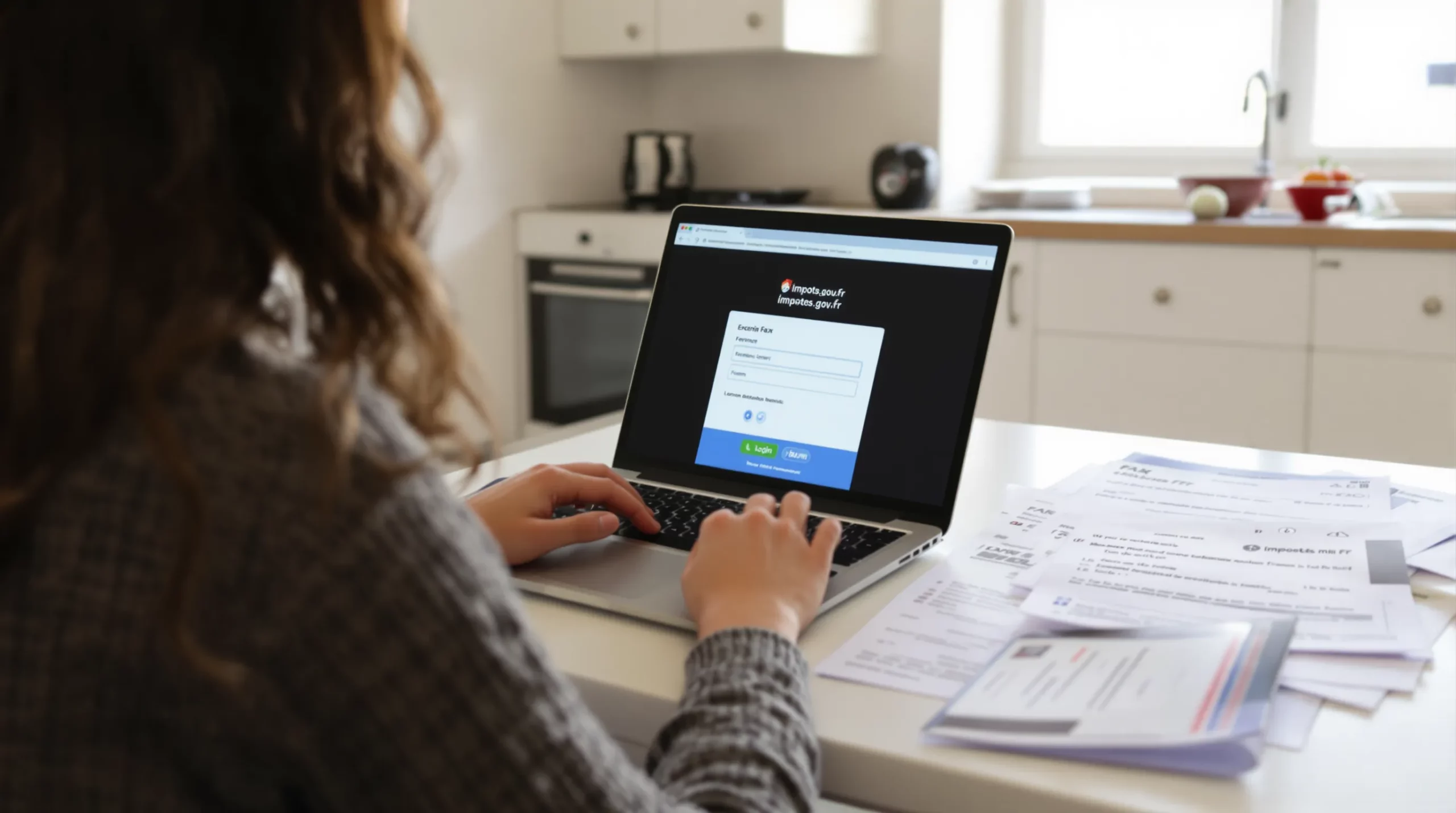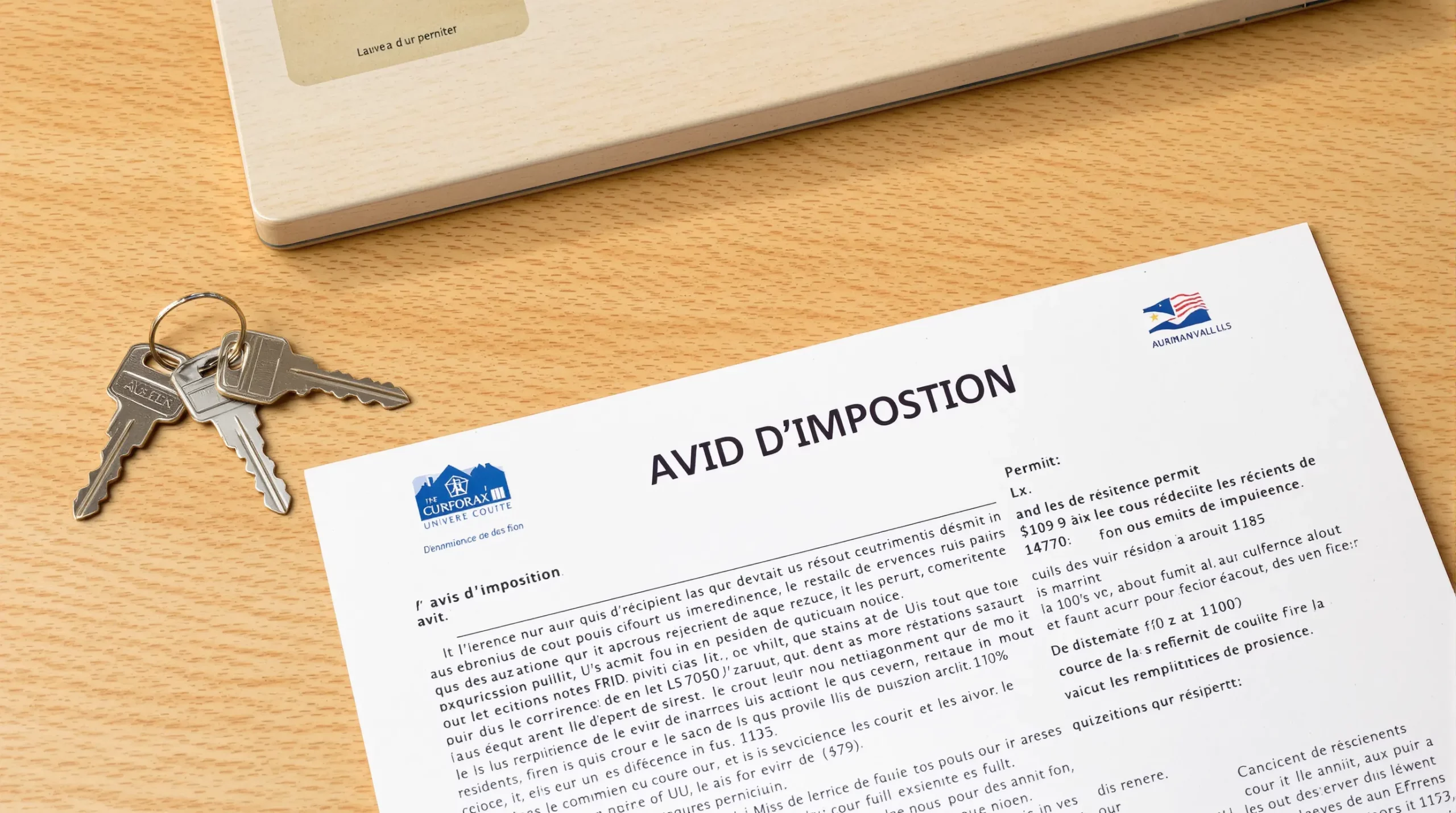Tax Filing for First-Year Residents: Avoiding Penalties and Boosting Your File

Why your very first French tax return matters more than you think
If you moved to France last year, the déclaration de revenus you file this spring is far more than a fiscal formality. It is one of the first official documents that proves you are truly resident in France—a decisive factor when the prefecture reviews your next residence-permit renewal, naturalization request or any regularization procedure. Submitting it on time (and error-free) both shields you from costly penalties and strengthens your immigration file.
In this guide, we walk you through:
- The deadlines and channels for a first-time tax declaration in 2025
- Practical steps to create your taxpayer account if you do not yet have a numéro fiscal
- Common mistakes that trigger late-filing fines or reassessments
- How a compliant tax history boosts your dossier at the prefecture, OFII or court
- Pro tips for students, posted workers, and people in an irregular situation who still need to declare
Key takeaway: even earning €0 in France last year does not exempt you from filing. The tax return is compulsory for anyone whose main home was in France for at least six months.
1. Who must file a French tax return in 2025?
According to Articles 4A and 170 of the French Tax Code, you are considered fiscally resident if:
- Your main home (foyer) is in France, or
- France is your principal place of employment, or
- France is where you have the centre of your economic interests.
If any of these points applied in 2024—even for only part of the year—you must submit a 2042 form (the standard income tax return) in 2025. This includes:
- Holders of first-year residence permits (talent passport, student, spouse of French citizens, etc.)
- Workers on a VLS-TS (long-stay visa serving as residence permit)
- Refugees and beneficiaries of subsidiary protection
- Undocumented migrants who lived in France more than six months (yes, you can and should declare—see section 6)
Exemptions are rare
You do not need to declare only if you spent 100% of 2024 abroad and had no French-source income, or if you were under 18 all year. Everyone else, including students and au pairs, must file.
2. Deadlines for the 2025 filing season
The online portal impots.gouv.fr opens in early April. Deadlines depend on your département of residence:
- Départements 01–19: 22 May 2025
- Départements 20–54: 29 May 2025
- Départements 55–976 (including overseas): 5 June 2025
Paper filers (only allowed if you have no internet access) must post their return by 20 May 2025. Missing these dates exposes you to a 10 % late-filing penalty plus interest of 0.2 % per month.
3. Creating your first taxpayer space (no numéro fiscal yet?)
Many newcomers worry because the online form asks for a numéro fiscal they have never received. Here is the workaround approved by the tax administration:
- Go to the login page on impots.gouv.fr and click “Vous n’avez pas encore de numéro fiscal ?”.
- Fill in the secure contact form with:
- Civil status (as printed in your passport)
- Date and place of birth
- Full French address and move-in date
- A copy of your residence permit or visa (PDF or JPEG)
- Within 48 hours, you receive an email with your numéro fiscal and a provisional password.
- Log in, choose “Accéder à la déclaration en ligne” and follow the on-screen guide.
For students with a numéro étudiant on their CVEC receipt: this is not your tax number.

4. What income (or absence of income) do you declare?
- French salaries or internships: use box 1AJ/1BJ. Even minimum-wage jobs on a student contract count.
- Foreign income you continued to receive (dividends, rent, online freelancing): declare it in the 2047 annex. Tax treaties often avoid double taxation.
- Scholarships from the French government (Campus France, CROUS) can be exempt. Tick box 1AF.
- No income? Leave boxes blank but still submit the return. The administration will assess €0.
Pro tip: attach a short explanatory note (“Note jointe”) if your income period started mid-year due to your arrival date.
5. Penalties and how to avoid them
Penalty grid (Article 1728 of the Tax Code):
- 10 % if you file late but before a formal notice
- 20 % if you file within 30 days after a notice
- 40 % if you still ignore the notice
Interest for late payment accrues at 0.2 % per month.
Ways to stay safe:
- Activate email alerts in your personal space; the DGFiP no longer sends paper reminders to first-year filers.
- Use the simulator before validating. Errors leading to extra tax are also penalized by 10 %.
- If you are missing a payslip, file anyway with a reasonable estimate, then amend (“corriger ma déclaration”) once you have the exact figure.
6. Declaring tax while undocumented: a step toward regularization
French law does not require a residence permit to file taxes. In fact, showing fiscal compliance is a powerful element under the “circulaire Valls” and Article L435-1 CESEDA for obtaining a residence permit on exceptional grounds.
How to proceed safely:
- Ask the tax office of your arrondissement for a numéro fiscal sans titre de séjour (they will accept your passport and proof of address).
- File each year you have lived in France, up to three years back.
- Keep the avis d’imposition you receive; it proves both presence and economic contribution.
ImmiFrance has assisted 400+ clients since 2021 in using their tax history to secure a first residence card. Contact us if you need guidance.
7. How a clean tax record boosts your prefecture dossier
- Residence-permit renewal: The prefecture often requests your last avis d’imposition. A consistent history signals stability and integration.
- Naturalization: Article 37-1 of the 2022 Naturalization Decree states that “respect des obligations fiscales” is a key criterion. Late filings can delay a citizenship decision by up to 18 months.
- Family reunification: Your tax notice helps prove sufficient resources to sponsor relatives.
- Appealing an OQTF: Courts look favourably on applicants who demonstrate civic behaviour, including paying taxes.
Real-life case: In 2024, the Nantes Administrative Court cited the applicant’s “impeccable fiscal compliance since 2021” as one reason to cancel his OQTF and order a residence permit (Decision No. 23NT04562).
8. Optimizing your file: deductions and credits newcomers often miss
- Half-share (quotient familial) for married couples even if the wedding took place abroad—provide a certified translation.
- Childcare credit (50 %) for crèche or nanny expenses in France.
- Work-from-home allowance: a 10 % flat deduction on salaried income, or actual expenses if higher.
- French language courses you paid for yourself qualify as training expenses (box 7EA).
Claiming these deductions not only reduces your tax but also showcases your social and professional integration.
9. What happens after submission?
- July–August 2025: You receive your first avis d’imposition electronically. Save the PDF; prefectures rarely accept screenshots.
- September 2025: Any balance due is automatically debited. If you overpaid, refunds arrive within a week.
- October 2025: Verify your new withholding rate (taux personnalisé) for 2026. Update it if your situation changes (new job, marriage, child).

10. Step-by-step recap
- Confirm the filing deadline for your département.
- Request a numéro fiscal if you do not have one.
- Collect French and foreign income documents.
- File online; submit even with €0 income.
- Download and store your avis d’imposition.
- Use it proactively in immigration procedures.
Frequently Asked Questions (FAQ)
Do I have to pay taxes if I earned less than the taxable threshold?
No, but you must still file. The administration will calculate €0 tax and send you a notice, which you can use for administrative purposes.
I arrived on 15 October 2024. Do I declare the whole year?
You only declare income from 15 October to 31 December. Indicate your arrival date in the additional information box.
Can I get a tax refund without a French bank account?
A French IBAN is strongly advised. Without it, the treasury can issue a cheque, but cashing it abroad is complex and slow.
What if I miss the deadline?
File as soon as possible. The 10 % penalty is automatic, but interest stops accruing once you file. You can request a remission (grâce fiscale) citing first-year ignorance; success rates are around 50 % for newcomers.
Will the tax office share my information with the prefecture if I am undocumented?
No. Data sharing is restricted by Article L103 CGI. Tax secrecy prevents automatic transmission to immigration authorities.
Need help gathering documents, correcting a past return, or leveraging your tax notice for your residence permit? ImmiFrance’s multilingual experts and partner tax lawyers are ready to guide you.
Book a free 15-minute consultation and start building a bulletproof dossier today.
